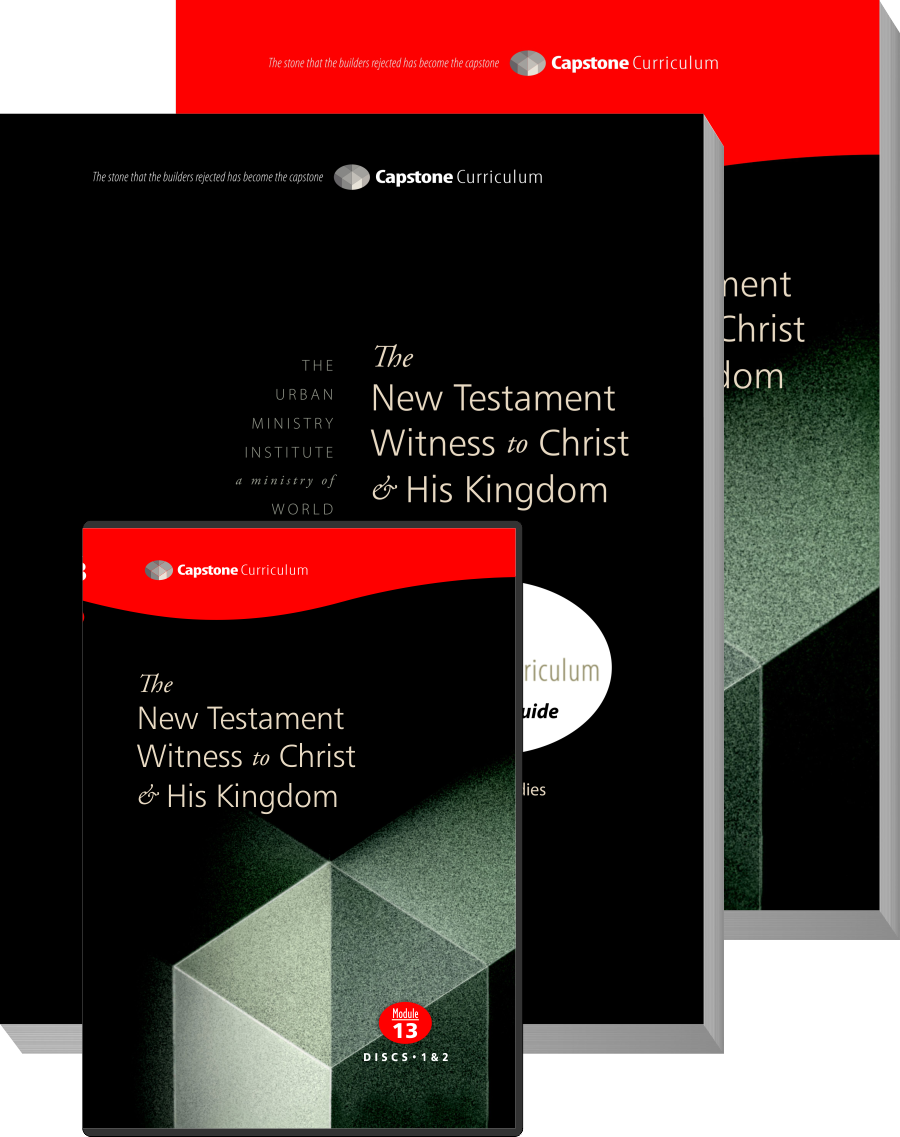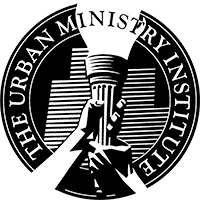 Module 13: New Testament Witness to Christ & His Kingdom
Module 13: New Testament Witness to Christ & His Kingdom
There can be no question that the most critical and important subject to master in the life of a Christian leader is the actual person and teachings of Jesus of Nazareth. No other subject is as significant or controversial as the meaning of his life and ministry. This module is designed to introduce you to a “life of Jesus” survey that concentrates on the historical accounts in the Gospels, beginning at the announcement of his birth to his ascension after his death at Calvary. No other study can yield a greater intellectual and spiritual harvest than a concentrated focus upon the historical facts surrounding Jesus’ life, ministry, passion, death, resurrection, and ascension. Jesus of Nazareth is Messiah and Lord of all!
After summarizing the critical perspectives and processes associated with a profitable study of the life of Christ, we consider the birth, infancy, and childhood narratives of the Messiah. We see that the New Testament reveals in the Gospel accounts of the Apostles that Jesus of Nazareth is the Messiah who fulfills the promise of God for salvation, redemption, and revelation. We next look at the historical context surrounding Jesus’ public ministry, and the various Jewish sects and parties which responded to him and to Rome throughout his public ministry. We will explore how the OT messianic portrait is fulfilled perfectly in the life and works of Jesus of Nazareth. His suffering, death, and resurrection give clear witness that he, in fact, was truly the One prophesied to come and restore God’s Kingdom to the world. Indeed, Jesus is vindicated as the Messiah through his resurrection, his ascension, and the sending of the Holy Spirit to the Church, which is his body in the world today.
Course Details
Lesson 1: The Messiah Announced
Lesson 2: The Messiah Opposed
Lesson 3: The Messiah Revealed
Lesson 4: The Messiah Vindicated
Module Description
New Testament Witness to Christ and His Kingdom
There can be no question that the most critical and important subject to master in the life of a Christian leader is the actual person and teachings of Jesus of Nazareth. No other subject is as significant or controversial as the meaning of his life and ministry. This module is designed to introduce you to a “life of Jesus” survey that concentrates on the historical accounts in the Gospels, beginning at the announcement of his birth to his ascension after his death at Calvary. No other study can yield a greater intellectual and spiritual harvest than a concentrated focus upon the historical facts surrounding Jesus’ life, ministry, passion, death, resurrection, and ascension. Jesus of Nazareth is Messiah and Lord of all!
Our first lesson, The Messiah Announced, will concentrate on a brief first look at the critical perspectives and processes associated with a profitable study of the life of Christ. We’ll then proceed to look at the birth, infancy, and childhood narratives of the Messiah. We will see that the New Testament reveals in the Gospel accounts of the Apostles that Jesus of Nazareth is the Messiah who fulfills the promise of God for salvation, redemption, and revelation. We will also look carefully at the one chosen by God to announce Messiah’s ministry, John the Baptist, attending both the baptism of Jesus, and his temptation in the wilderness. We end our first lesson by considering two important incidents concerning Jesus’ announcement of his Messiahship: his inaugural sermon at Nazareth, and his first public miracle attesting his Messiahship at the wedding at Cana.
In our second lesson, The Messiah Opposed, we begin by looking at the historical context which surrounded Jesus at the time of his appearing in his public ministry. We will survey the nature of Rome’s domination of the first century world, and see how the different Jewish sects and parties responded to Rome and to Jesus. We will look at the Sadducees, Pharisees, Essenes, Zealots, and Herodians. In the second segment of this lesson we will explore the Jewish concept of the Kingdom of God at the time of Jesus. We’ll see how the nation of Israel, oppressed by political powers, believed that when Messiah came, the Kingdom of God would come in power, restoring the material universe and saving humankind from the control of Satan. Of course, Jesus proclaimed the Kingdom present, and demonstrated its reality in his healings and exorcisms, revealing the Kingdom’s presence in his own person and ministry.
Lesson three deals with The Messiah Revealed, which aims to understand that in the person of Jesus, the promised Messiah is powerfully revealed through his perfect life and character, his masterful leadership of the Apostles, and his submissive sonship to his Father. Jesus’ Messiahship is made plain through his prophetic teaching ministry, as well as in the mighty demonstrations of power, both in signs and wonders (miracles) and dramatic encounter with spiritual demons. Here we will also briefly consider the suffering and death of Jesus (i.e., his Passion). His death provides us with a clear revelation of the promised Messiah. We will also consider Peter’s confession of Jesus’ true identity, accompanied by Jesus’ prediction of his death, and his resolve to go toward Jerusalem. We will look at Jesus’ triumphal entry into Jerusalem, his final week encountering the Jewish leaders, and his Passover with the disciples. Finally, we will look at the events surrounding his crucifixion and death, his agony in prayer in the Garden to his burial after his death on the cross. Undoubtedly, Jesus’ suffering and death give strong and undeniable testimony of his identity as the Son of God, as God’s anointed Christ, the one who can reassert God’s right to rule over his creation and over all humankind.
Finally, lesson four discusses The Messiah Vindicated. This lesson considers both the significance of the resurrection of Messiah Jesus, and its importance in our theology, faith, and ministry. Once we consider the evidence for the resurrection, we will then survey the various appearances of Jesus, beginning with his resurrection at the tomb up until his appearance to the Apostles at the Sea of Galilee. Nothing provides a clearer witness to the vindication of the Messianic identity of Jesus Christ than this one unequivocal fact: Jesus Christ has been raised from the dead.
We will close this module with a critical study of the Great Commission as a continuing vindication of Jesus’ identity as Messiah, and the importance of this commission as it relates both to the fulfillment of prophecy as well as to global mission. For forty days after his resurrection, Jesus demonstrated its truthfulness to the Apostles, and gave his promise to send them the Holy Spirit to fulfill that commission. We close our study of the life of Jesus with a look at the Ascension, the final historical sign which gives evidence of Jesus’ vindication as Messiah. Jesus of Nazareth is the Messiah of God.
Again, there can be little doubt that the depth of our ministry and leadership can proceed no further than the depth of our knowledge of Jesus Christ, the Messiah of God and Lord of all. Therefore, may our God and Father provide you with both the hunger, passion, and discipline to master the life and ministry of Jesus. In so doing, you will be able to be his disciple and make disciples of Jesus in your church, in your ministry, and wherever else God may lead.
Reading Assignments
Lesson 1: Reading Assignments
By the conclusion of this lesson, you should have read the following:
Geisler, To Understand the Bible Look for Jesus, pp. 7-52
Stott, The Incomparable Christ, pp. 7-25.
Elwell and Yarbrough, Encountering the New Testament: A Historical and Theological Survey (Encountering Biblical Studies), pp. 19-151.
Lesson 2: Reading Assignments
By the conclusion of this lesson, you should have read the following:
Geisler, To Understand the Bible Look for Jesus, pp. 53-87
Stott, The Incomparable Christ, pp. 79-144.
Elwell and Yarbrough, Encountering the New Testament: A Historical and Theological Survey (Encountering Biblical Studies), pp. 153-271.
Lesson 3: Reading Assignments
By the conclusion of this lesson, you should have read the following:
Geisler, To Understand the Bible Look for Jesus, pp. 88-123
Stott, The Incomparable Christ, pp. 144-235.
Elwell and Yarbrough, Encountering the New Testament: A Historical and Theological Survey (Encountering Biblical Studies), pp. 273-385.
